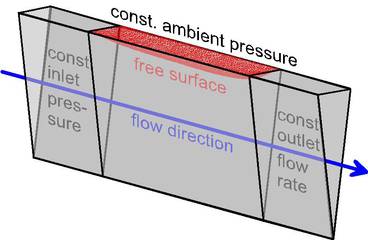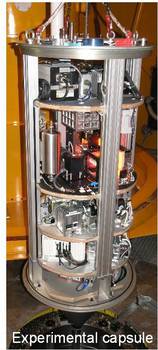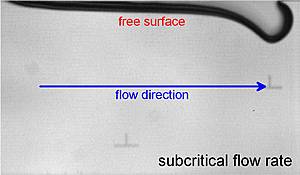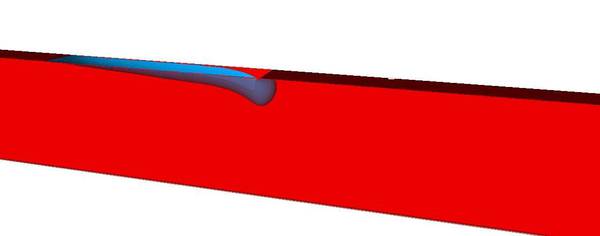wedge channel

Open capillary channels are often used for transport of liquid, e.g. in surface tension tanks of satellites. To supply gas free propellant to the engines a collapse of the free surface must be avoided. Here the flow limit in wedge-shaped channels has been studied experimental and numerical. For subcritical flow rate the interface can balance the pressure difference between the gas phase and the liquid. At supercritical flow rate the decrease of liquid pressure along the flow path causes the collapse of the free surface. The experimental and numerical results are summarized in this video file as a proposal for the Gallery of Fluid Motion.

drop tower experiments
The low gravity environment of the Bremen Drop Tower has been used to study the inertia-dominated open channel flows in wedge-shaped channels. The experiments show the dynamic reorientation of the free surface from 1g to 0g environment for subcritical and for supercritical flow in a wedge-shaped channel.

numerical simulations
In addition one- and three-dimensional computations with Surface Evolver and OpenFoam determine important characteristics of the flow, such as the free surface shape, the velocity field, the dynamics of the reorientation and the flow rate depended collapse of the free surface. The good agreement validates the capabilities of the numerical solver.
references:
- Klatte, J., Grah, A., Dreyer, M.: Inertia-dominated capillary channel flow in Microgravity, Cornell University Library, eCommons, 2009
- Klatte J., Haake, D., Weislogel, M. M., Dreyer, M. E.: A fast numerical procedure for steady capillary flow in open channels, Acta Mech., 201, 269-276 (2008). Download source code here
- Haake, D., Klatte, J., Grah A., Dreyer, M. E.: Flow rate limitation of steady convective dominated open capillary channel flow through a groove, Microgravity Sci. Tec., 22, 129-138, (2010)



 "
"